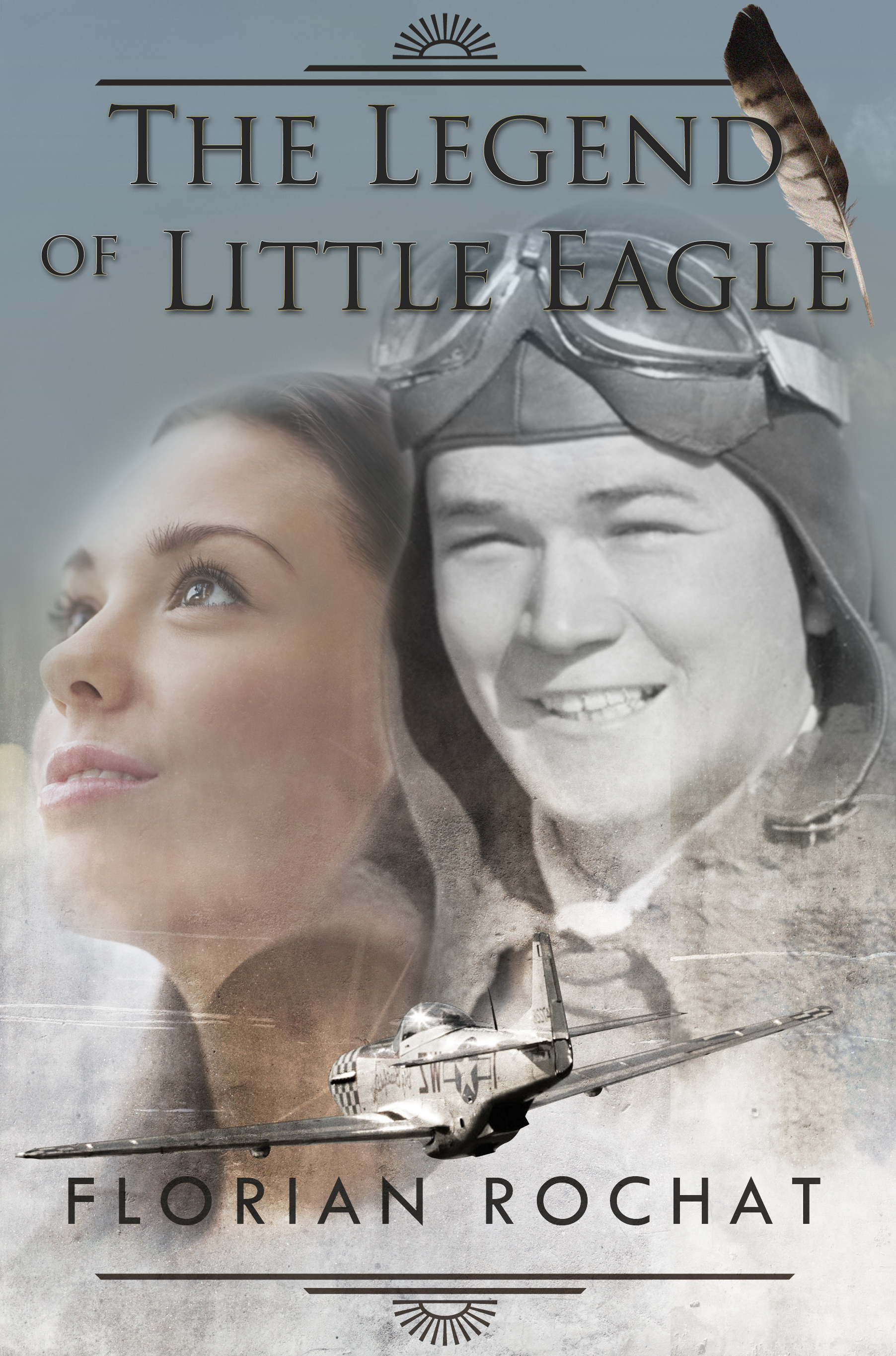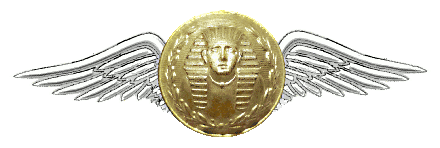
THE LEGEND OF LITTLE EAGLE
« The Legend of Little Eagle » is a novel about destinies that intersect. It is based on a true story which involved an actual American pilot – Lieutenant LeRoy Lutz – whose warplane was hit by anti-aircraft fire while strafing a German train. He then made the decision of purposefully crashing into a clear area instead of dashing into a French village called Mardeuil in Champagne, in June 1944. He did not survive to his feat, but the villagers did.
LeRoy Lutz has been turned into « John Philippe Garreau », and LeRoy Lutz flew a P-38 Lightning whereas Garreau is on a P-51 Mustang for the novel.
Here is further information about this book from a post written by Florian Rochat – the book’s author – published in French on January 24th, 2012:
In 1999, while I was in Montana researching my novel « Cougar corridor », I discovered a letter mailed from France in 1947. It said how a pilot of the US Army Air Force, Lieutenant LeRoy Lutz, had avoided a tragedy by staying on his damaged plane in order not to fall on a small village of Champagne, Mardeuil. It was in June 1944. Having renounced the bail out option while still able to do so, Lutz (picture below) had paid with his life this heroic act. His Lightning P-38 crashed in a field.
I told in a previous article of this blog how this letter led me to write my latest novel, The Legend of Little Eagle.
But now I have found its author. His name is André Mathy and he lives in Epernay, France…
…Time passes by, History is forgotten, but for the old inhabitants of Mardeuil LeRoy Lutz is always a hero whose sacrifice helped avoid civilian casualties in their village. « This story keeps coming to my mind, » said André Mathy.
I have been able to find him, which moves me. For this endpoint in the long story that was the writing of The Legend of Little Eagle highlights a surprising phenomenon on which I return repeatedly – over the reconstruction of the life of my hero who experienced a similar fate to LeRoy Lutz – in this story in which the notion of fate is perhaps the theme: the meaning and weight of stories, as explained in several books by William Kittredge, one of the great writers of Montana. According to him, our lives are ceaselessly intertwined with narrative, with the stories that we tell or hear told, those that we dream or imagine or would like to tell, all of which are reworked in that story of our own lives that we narrate to ourselves in an episodic, somewhat semiconscious, but virtually uninterrupted monologue. We live immersed in narrative (have you noticed?) These stories allow us, according to him, to situate ourselves in the world, and find meaning in our existence in the chaos of life. « We live in stories. We are stories, » he asserts.
“We tell stories to talk out the trouble in our lives, trouble otherwise so often so unspeakable. It is one of our main ways of making our lives sensible. Trying to live without stories can make us crazy. They help us recognize what we believe to be most valuable in the world, and help us identify what we hold demonic,” Kittredge adds.
Seventeen years ago, when he finally learned about his father’s display of courage, Richard Lutz, LeRoy’s son, declared: « I was twelve years old when my mother told me that my father had died in France. I always thought he was the bravest pilot on earth. But now I know. »
This book has already had 4.7 stars out of 13 customer reviews on Amazon.fr. It is a breath-taking novel according to them. The readers did love Florian Rochat’s talent and style. The synopsis made them believe that it was a book on aviation. It is, with many scenes of air combat during John Philip Garreau’s missions over Germany and France. But there is more to it. As mentioned above, it mainly deals with puzzling questions on destiny and fates bound within a same tragic event. However, these readers loved reading this unbelievable story. Air combat is not swept out of sight as the act of gallantry when LeRoy Lutz veered away from the village to save lives is well highlighted. Moreover, the hero amazingly meets with a famous WWII aviator.
Many reviews, and articles have been posted about this book, especially in French since it was first written in French. Here are two of them:
https://baugelitt.eu/florian-rochat-la-legende-de-little-eagle-le-passe-tenace/
You can read Florian Rochat’s biography on Xavier Cotton’s blog « Passion pour l’Aviation« . Special thanks to Xavier who passed the information on.
« The Legend of Little Eagle » is on sale as an ebook on Amazon.com, Amazon.co.UK, Amazon.ca, and Amazon.com.au, Smashwords and other digital platforms, and as a paperback on all Amazon bookstores. Author’s website: http://www.florianrochat.com


